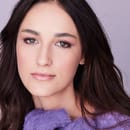A considerable number of young people assume, upon my telling them I enjoy poetry, that I mean Rupi Kaur. It seems that, as poetry is taught less and less in schools and enjoyed less and less and less as a pastime, Kaur and her band of copycats have practically defined poetry for many young people. Not that there is anything necessarily wrong with Kaur herself, but it drastically underestimates poetry as a genre to assume that she is the pioneer of contemporary poetry. That said, poetry is not dead. There are countless incredible new poets with command over the intricacies of language who say important things and do so in novel ways. It is time we expand the definition of contemporary poetry for young people, and the perfect way to start is with these five must-read contemporary poets.
- Ocean vuong
-
This list would not be a list without Ocean Vuong. Vuong’s striking, poignant language cultivates incredibly evocative images of generational trauma and hurt and the intricate and impossibly complicated dynamics of love, especially in queer relationships. He is the ideal introduction to contemporary poetry, with his first collection, “Night Sky With Exit Wounds,” being an excellent place to start. That said, it you’re interested in his poetry but aren’t quite ready to dive in, his novel On Earth We’re Briefly Gorgeous captures his typical themes of love, generational trauma and war in wonderfully poetic language while being slightly more approachable than a poetry collection.
- Ada Limón
-
The 24th Poet Laureate of the United States (and the first Latina Poet), you absolutely cannot go wrong with Ada Limón’s poetry. Limón’s narrative-style poetry often emulates a stream of consciousness or thought processes and generally features quite approachable language. Her poetry is candid and direct, exploring themes of infertility, chronic illness and womanhood.
- Margaret Atwood
-
You’ve likely heard of her for her iconic dystopian novel The Handmaid’s Tale, but did you know that Margaret Atwood is also an incredible poet? Much like her fiction, many of Atwood’s poems are inspired by myths and fairy tales, imbuing them with an element of alluring mysticism. Precise, impactful and often brief, Margaret Atwood’s poetry, including her most recent collection, “Dearly,” is a must-read.
- Louise Glück
-
Hauntingly compelling, Nobel Prize winner (and Poet Laureate of 2003) Louise Glück’s poetry often derives from personal experiences, including family life, childhood and relationships. Like Atwood, Glück draws inspiration from mythology and fairytale, often giving voice to historic or mythological figures such as Joan of Arc and Orpheus. A Jewish poet, she also often draws influence from the Hebrew Bible to create hypnotizingly beautiful poems that are simultaneously expansive and concise.
- Maggie Nelson
-
A writer that spans genres (and even combines them), Nelson is revolutionary in her skill. She rejects confinement to any genre, writing literary criticism, poetry, autobiography, theory and more. Interested in issues such as queerness and feminism, Nelson writes with passion and purpose. Her most recent work, “Bluets,” is characteristically genre-defying, exploring love and personal suffering through the color blue with lyrical prose-poetry.
There you have it—five ways to expand your TBR and evidence that Rupi Kaur isn’t the defining figure of contemporary poetry. Together, these poets explore the intricacies of the human condition through artistically distinct and compelling voices. They are icons of contemporary poetry, and any is an ideal starting place to explore the genre.


